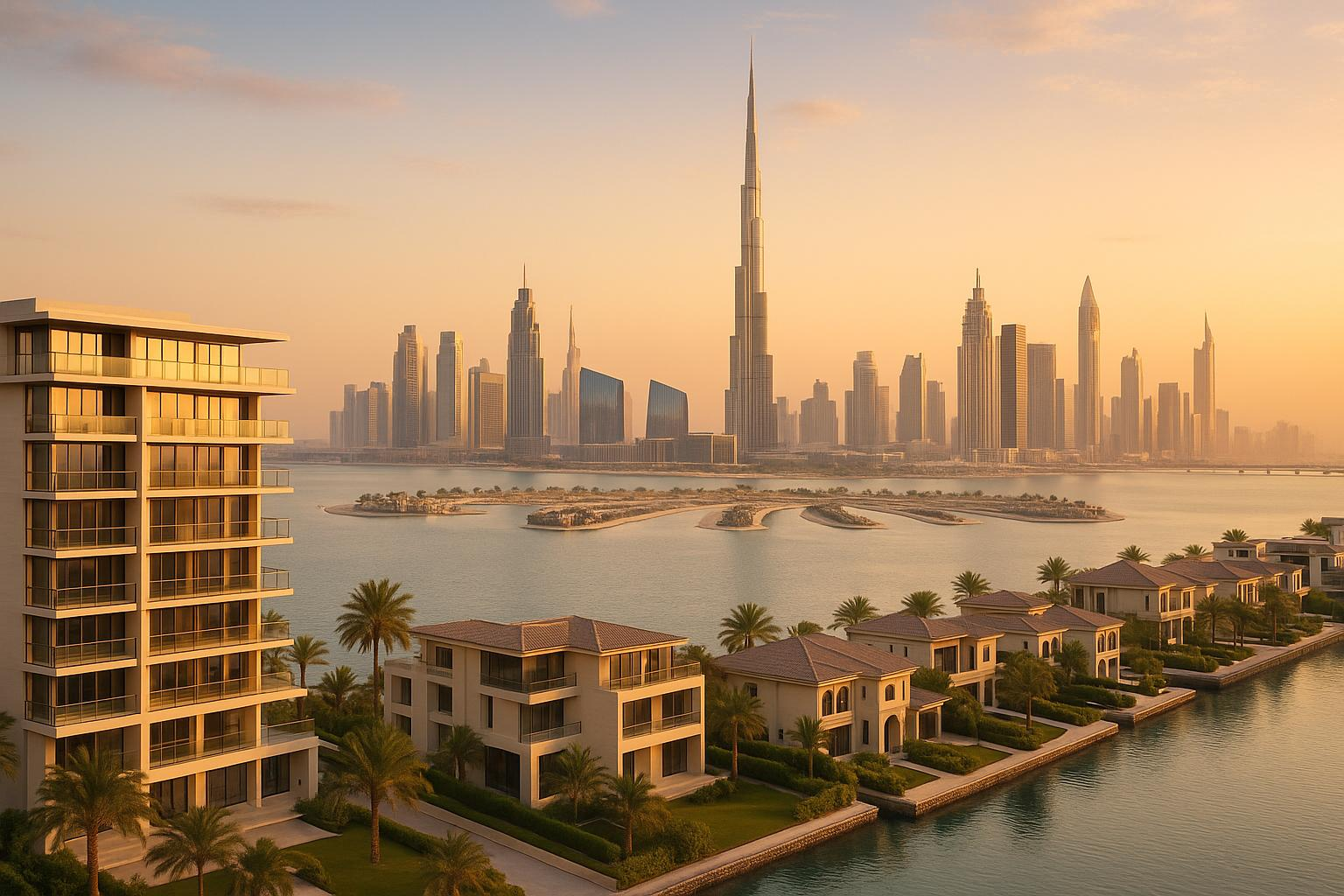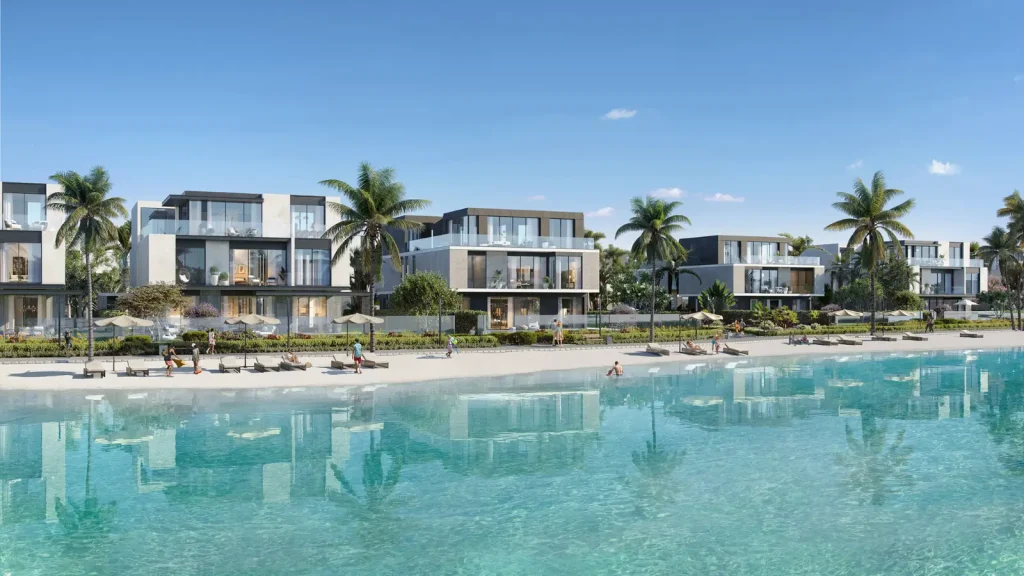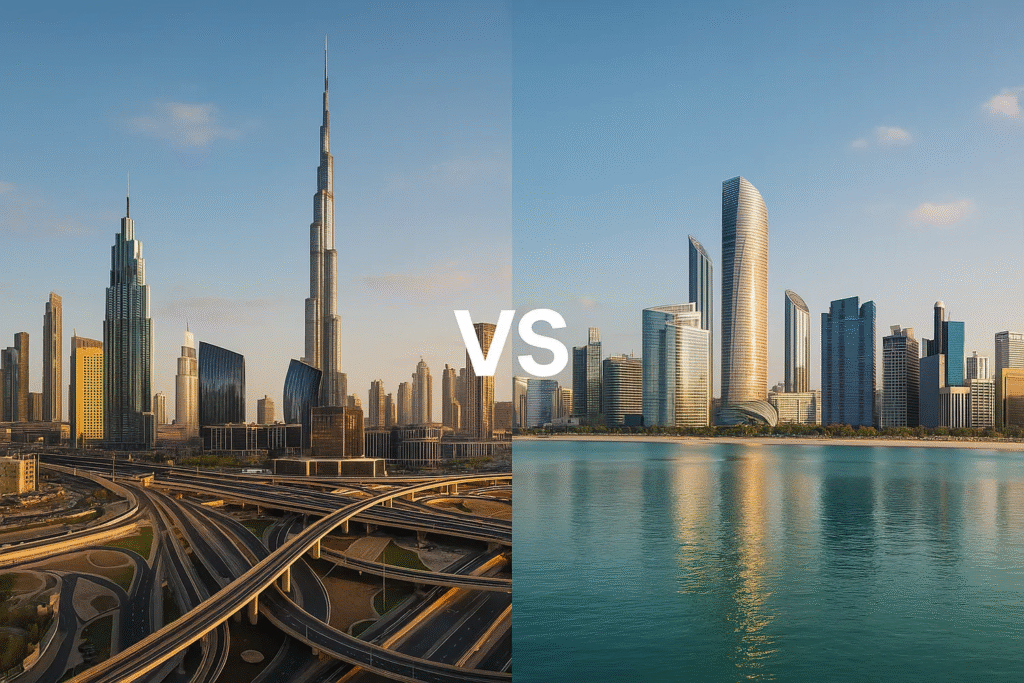
Dubai Property Investment: Dubai’s real estate market in 2025 is booming, with 226,000 transactions worth AED 761 billion in 2024, reflecting a 36% increase in volume and 20% in value year-on-year [web:3]. Freehold zones, where foreigners can own property outright, are a key driver, offering 6–12% rental yields, 5–15% capital appreciation, and tax-free returns.
Established under Decree No. 3 of 2006, freehold areas like Dubai Marina, Downtown Dubai, and Palm Jumeirah attract international investors with full ownership rights, Golden Visa eligibility for investments over AED 2 million, and no personal income or capital gains taxes. This article outlines seven long-term benefits of investing in Dubai’s freehold zones, highlighting their financial, legal, and lifestyle advantages in a market poised for sustained growth.
Freehold zones grant international buyers 100% ownership of properties, unlike leasehold markets with limited tenure (e.g., 99 years). Areas like Jumeirah Village Circle (JVC), Business Bay, and Dubai Hills Estate allow foreigners to purchase apartments, villas, or commercial spaces with perpetual title deeds, transferable to heirs. This permanence ensures asset security and flexibility for resale or rental, unlike restricted markets like Saudi Arabia. Buyers should verify title deeds via the Dubai Land Department (DLD) portal to confirm freehold status and avoid disputes.
Dubai’s tax-free environment is a major draw, with no personal income or capital gains taxes. A AED 2 million apartment in Dubai Marina yielding 8% generates AED 160,000 annually, entirely tax-free. Selling a property appreciating 10% over five years (e.g., AED 200,000 profit) incurs no tax, unlike markets like the UK (up to 28% capital gains tax). For commercial properties, using DIFC or DMCC free zone companies can minimize 9% corporate tax on rental profits over AED 375,000. Consult tax advisors to ensure Federal Tax Authority (FTA) compliance and optimize returns.

Freehold zones like Dubai Marina (6–10%), JVC (7.5–9.3%), and Dubai South (8–11%) offer rental yields surpassing global averages (e.g., London at 4.5%, New York at 5.43%) [web:10]. Dubai’s 25 million annual tourists and 4 million-strong expat population drive 90%+ occupancy rates in prime areas. Short-term rentals via Airbnb in Business Bay can yield up to 13.54%, while long-term leases in JVC offer 7–9% [web:10]. Use the Dubai Smart Rental Index 2025 and platforms like Property Finder to set competitive rates, ensuring consistent income streams.
Freehold properties in zones like Dubai Creek Harbour (10–15%) and Palm Jumeirah (7–10%) deliver robust capital gains, driven by infrastructure projects like the Dubai Metro’s Blue Line and Etihad Rail [web:18]. A AED 1.5 million apartment in Emaar South could appreciate by AED 150,000–225,000 by 2027. Off-plan investments, such as Bugatti Residences in Business Bay, lock in lower prices for 10–15% gains by handover [web:3]. Monitor market trends via DXB Interact and DLD data to target high-growth zones like Dubai South or Al Furjan for long-term value.
Investing AED 2 million in freehold properties, such as villas in Nad Al Sheba Gardens or apartments in Downtown Dubai’s DT1, qualifies buyers for the UAE’s Golden Visa, granting 10-year renewable residency for themselves, spouse, unmarried daughters, and sons under 25. This allows sponsor-free living, working, and studying, with no minimum stay requirement. Processing fees are AED 9,884.75 for the primary applicant (AED 5,774.50 per family member), requiring a title deed and health insurance [web:15]. Verify eligibility via DLD and engage legal advisors to streamline applications, enhancing lifestyle and investment appeal.
Off-plan properties in freehold zones, dominating 63% of 2024 sales, offer payment plans like 60/40 or 50/50, reducing upfront costs [web:3]. For example, a AED 1.7 million apartment in Creek Waters II requires a 10% deposit (AED 170,000), with payments spread over construction. Residential off-plan purchases are VAT-exempt, saving 5% (e.g., AED 85,000 on a AED 1.7 million property). Verify escrow accounts via the DLD portal to ensure funds are protected and review sales purchase agreements (SPAs) for terms, maximizing affordability and ROI potential.
Freehold zones are strategically located near metro stations, schools, hospitals, and retail hubs, enhancing livability and tenant appeal. Dubai Hills Estate offers an 18-hole golf course and Dubai Hills Mall, while Business Bay’s proximity to the Red Line Metro and Dubai Canal ensures connectivity to Downtown Dubai. Developments like The Acres in Dubai land integrate smart home technology and green spaces, aligning with Dubai’s Net-Zero 2050 goals. These amenities drive long-term demand, ensuring stable rental income and property value growth.

Dubai’s freehold zones in 2025 offer unparalleled long-term benefits for investors, including full ownership, tax-free gains, high rental yields (6–12%), strong capital appreciation (5–15%), Golden Visa residency, flexible payment plans, and world-class infrastructure. Areas like Dubai Marina, JVC, and Dubai Creek Harbour provide diverse options for budgets and goals, supported by Dubai’s booming market and 2040 Urban Master Plan.
By targeting high-growth zones, verifying compliance, and leveraging professional guidance, investors can secure properties that deliver financial security, lifestyle benefits, and sustained value in one of the world’s top real estate destinations.
read more: Dubai Real Estate 2025: 5 Top Picks Near Metro Connectivity
